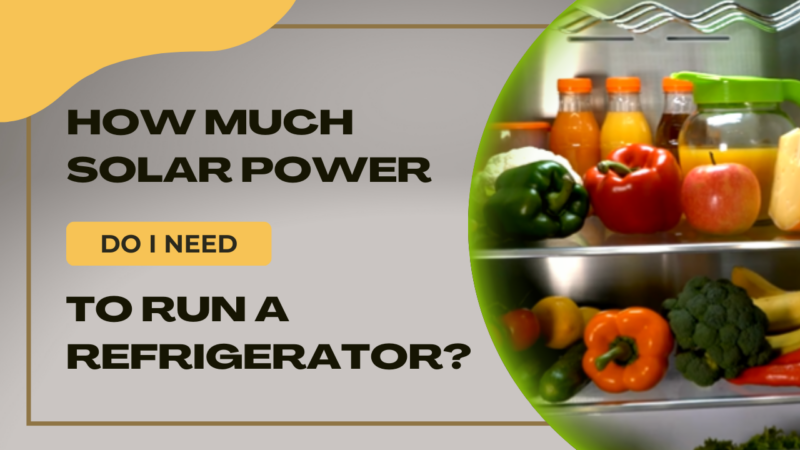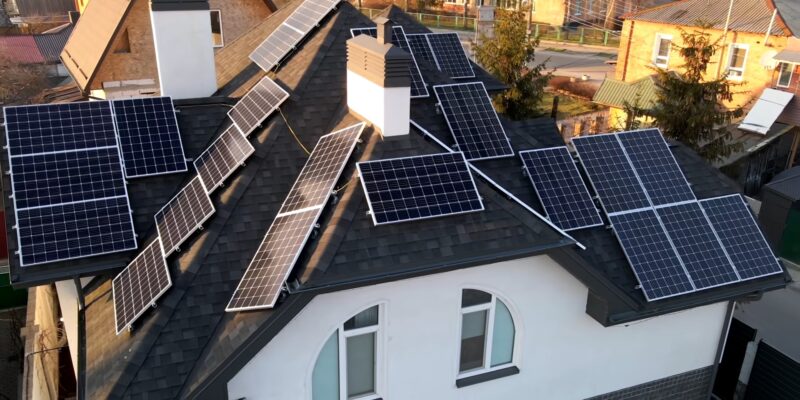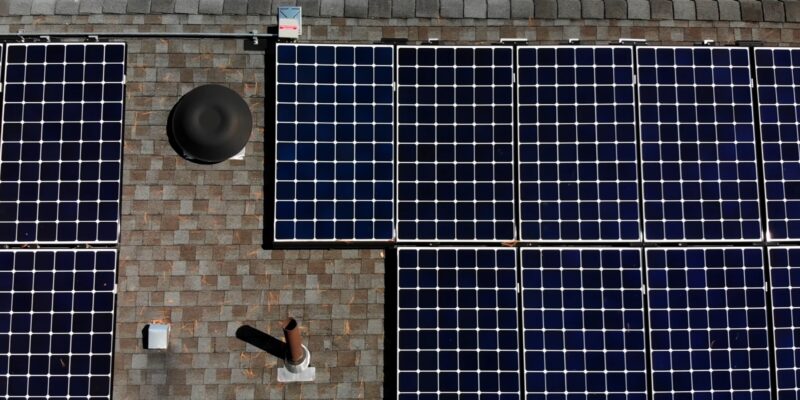If you’re like most people, you probably don’t think much about your refrigerator’s solar power requirements. However, if you want to reduce your electric bill, it’s a good idea to figure out how much solar power your refrigerator needs.
In this blog article, we will detail how you can calculate your refrigerator’s solar power needs and suggest some ways to reduce your electric bill by using more solar energy. We hope this information will help you save money and help the environment in the process.
Understanding Your Appliance’s Rating
Appliances come equipped with energy ratings, which indicate how much power the appliance will use. When rating an appliance for solar installation, it is important to understand the rating and what it means.
Some appliances have a wattage rating that indicates the maximum amount of wattage (electricity) the appliance can use. The wattage rating is usually listed on the product’s label or in the owner’s manual. For example, a dishwasher rated at 5000 watts can wash dishes using up to 5000 watts of electricity.
Other appliances have a kilowatt-hour rating that indicates how many kilowatt hours (hundreds of watts) the appliance will use over its lifespan. To figure out how many kilowatt hours an appliance uses, divide its wattage rating by 1,000. So a dishwasher rated at 5000 watts would use 5 kW/hour over its lifetime.
Calculating Your Needs
In order to calculate your needs for solar power, you first need to know how much energy your refrigerator is using on average. To find this out, you can use a simple calculation that takes into account the wattage of the appliance, the number of daylight hours in a given month, and the climate where you live.
Here’s an example: A 3-drawer refrigerator uses an average of 100 watts during the day and 50 watts at night. In a month with 30 days of daylight, this would equal 300 watts used by your appliance.
Next, you need to determine how much solar power your home can generate. This will depend on several factors, including location and roof size. The most common way to measure solar potential is in kilowatts (kW). A typical home in the US uses around 1 kW of energy from solar panels on its roof every day. This number can vary based on location; for example, California has a higher solar potential due to its sunny climate and a large array of sun-drenched roofs.
Finally, you need to factor in the cost! Solar installations are not cheap – they typically range from $5-$20 per watt installed – so make sure that solar power is viable for you before making any commitments or spending any money on installation costs!
Choosing the Right Panels
If you’re looking to power your refrigerator with solar energy, there are a few things to keep in mind. The amount of power your fridge needs will vary depending on the model and size of the unit, but generally speaking, a 2-drawer refrigerator rated at 1000 watt hours (wh) will require around 2 kilowatts (kW) of solar energy per day, while a 4-drawer unit will need about 4 kW.
To determine how much solar power you need to install your system, first, figure out how many watts your average household appliance uses. This can be found on packaging or online. Then multiply that number by 10 to get kilowatts (kW).
To estimate the size of your solar panel system needed, divide the total watt-hours required by the peak sunlight hours in your area per day. This figure will give you an idea of how large a panel system you’ll need. You can then use this information to locate an installer who can help you put together a system that fits your needs and budget.
Check out our article on what are solar panels made of.
Installing the Panels
If you’re planning to install solar panels, it’s important to understand how much power your refrigerator will need. The American Council for an Energy-Efficient Home (ACEEE) has a calculator that can help you figure out your needs.
To run a standard household refrigerator using solar energy, the calculator recommends installing a 5-kilowatt system. This means that if your home is equipped with a 5-kilowatt solar array or larger, you should be able to power your refrigerator with solar energy. If your home doesn’t have enough installed solar capacity to reach the recommended wattage, then you’ll need to look into purchasing an external battery system or installing a smaller refrigerator.
Testing the System
Running a refrigerator on solar power is a great way to reduce your carbon footprint. There are several factors that affect how many solar panels you will need to power your refrigerator, including the size of the appliance, the amount of sunlight that hits the panel each day, and whether or not the panel is mounted on an elevated surface. To get started, let’s take a look at some general guidelines.
For most homes in North America, a 100 watt system will be enough to power a standard 12 cubic foot refrigerator (with an energy-using model). This means that you would need at least 1/4 acre of land (12 square feet per acre) covered in solar panels to supply enough electricity for one average-sized refrigerator.
The good news is that it is becoming easier and more affordable to install small-scale solar systems. For example, a 50 watt system can provide enough juice to run an average-sized refrigerator. So if space availability is an issue or you just want something small and easy to use, go with a 50 watt system instead!
Now that we have determined what size system we need, let’s take a look at our options for installing it! The three most common ways to install solar panels are on roof tops (where there is plenty of direct
Conclusion
Running a refrigerator requires a fair amount of solar power. If you are interested in installing solar panels on your roof to generate electricity for your home, it is important to calculate the Solar Panels For Refrigeratorsneed and compare that number with the wattage required by your appliance.
Keep in mind that some appliances use more wattage than others, so if you’re not sure what type of refrigerator you have, call an electrician or contact the manufacturer.



